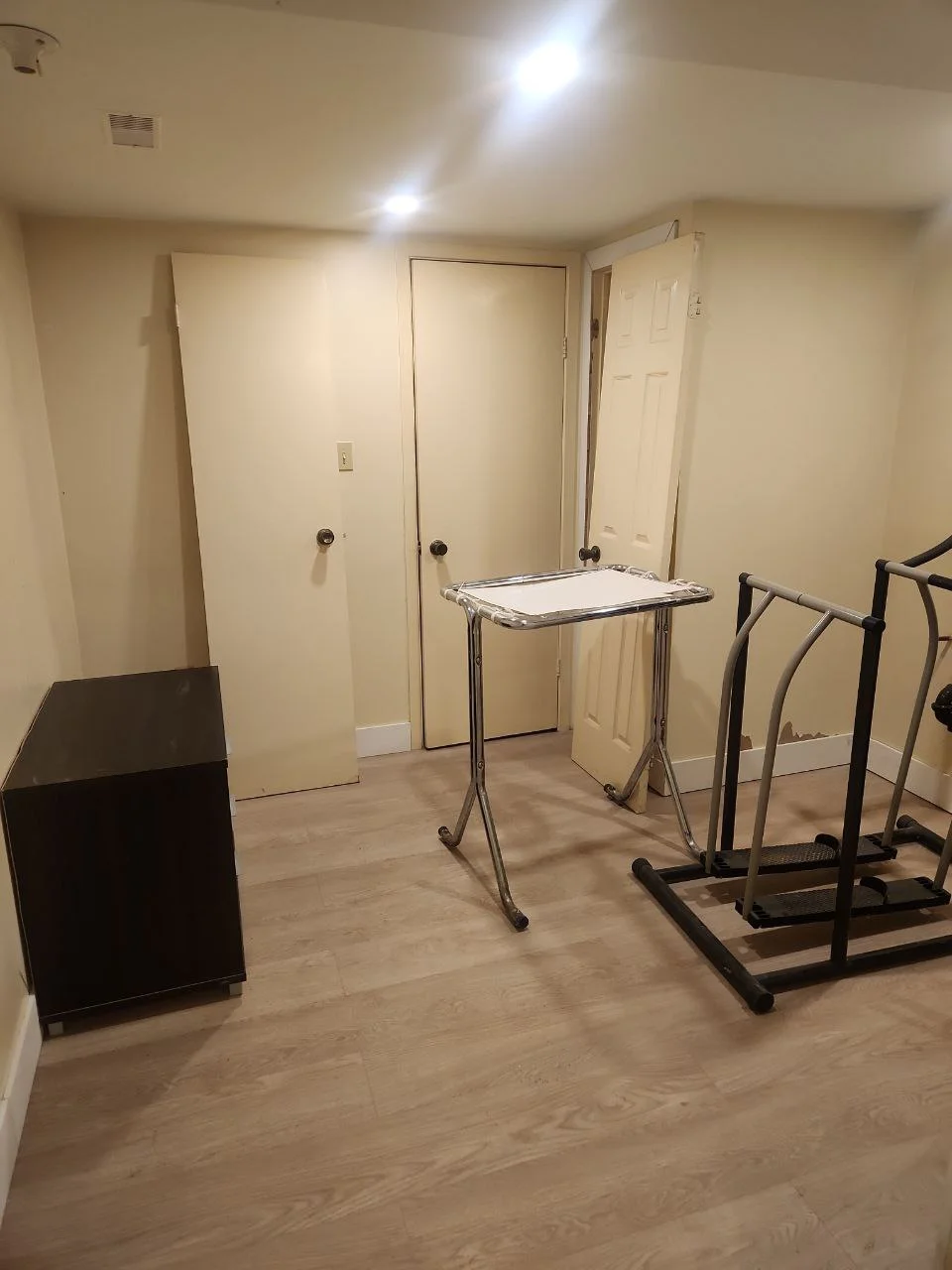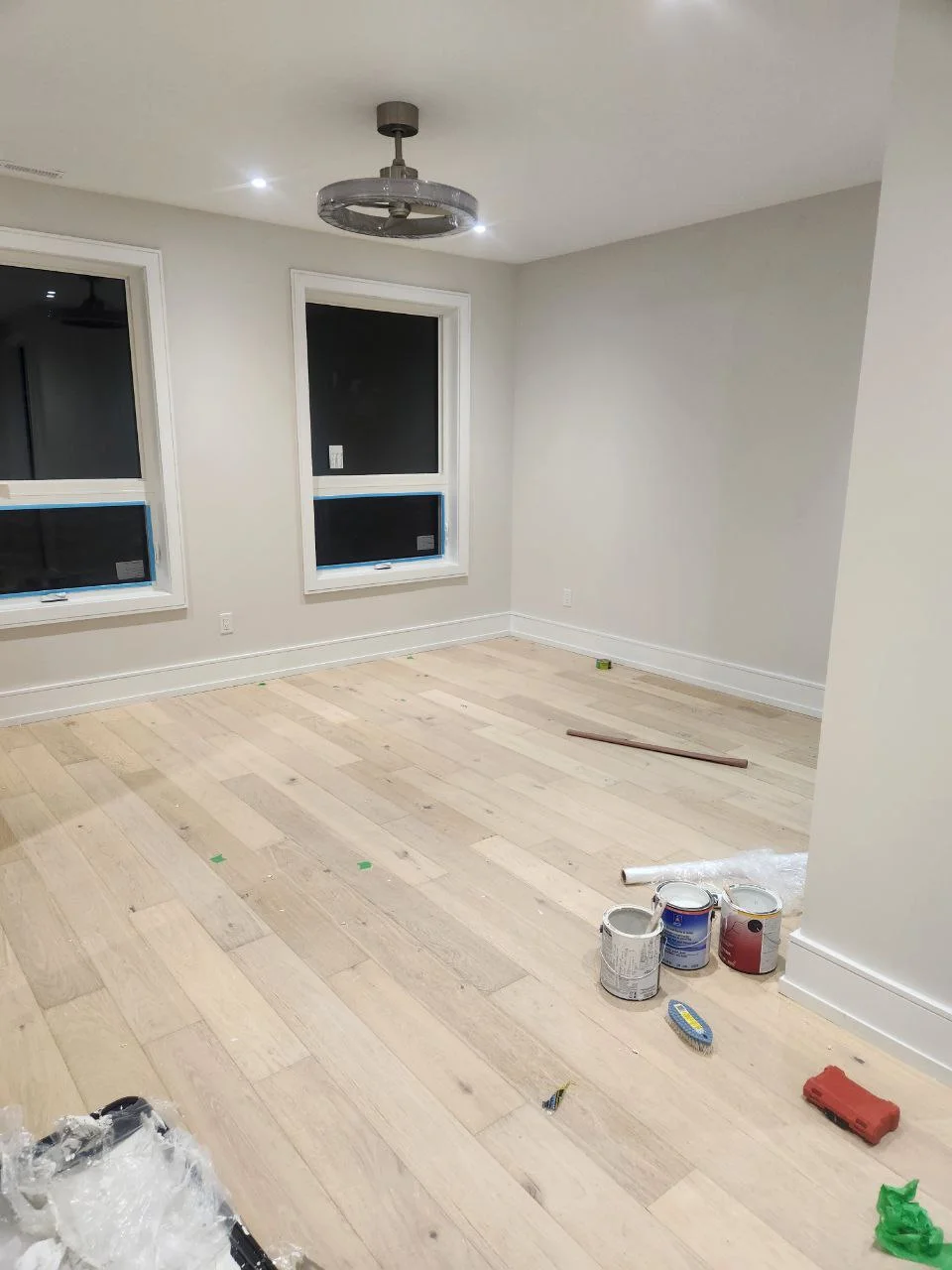Home Addition vs. Moving: What's Right for You?
Compare the costs and benefits of home additions versus moving in Toronto's competitive real estate market. Complete analysis to help you make the right decision for your family and finances.

Expert Team
Real Estate & Renovation Analyst
January 5, 2025
Toronto Market Analysis

The decision between renovating and moving impacts your family's future and finances
Quick Comparison: In Toronto's current market, home additions typically cost $200-400 per square foot, while moving costs (including real estate fees, land transfer tax, and moving expenses) often exceed $50,000-100,000 for comparable upgrades.
The Toronto Real Estate Context
Toronto's real estate market presents unique challenges for growing families. With average home prices exceeding $1 million and inventory at historic lows, the decision to stay and renovate versus move has significant financial implications. Understanding the full scope of costs and benefits is crucial for making an informed decision.
Current Toronto Market Realities:
- Average detached home price: $1.2-1.8 million (varies by area)
- Real estate commissions: 2.5-5% of sale price
- Land transfer tax: Up to 2.5% for properties over $2 million
- Home addition costs: $200-400 per square foot
- Construction timeline: 4-8 months for major additions
Cost Analysis: Home Addition vs. Moving
| Cost Factor | Home Addition | Moving |
|---|---|---|
| Construction/Renovation | $150,000-400,000 | $0-50,000 (minor updates) |
| Real Estate Fees | $0 | $30,000-90,000 |
| Land Transfer Tax | $0 | $20,000-45,000 |
| Moving Costs | $0 | $5,000-15,000 |
| Temporary Housing | $0-10,000 | $0 |
| Total Estimated Cost | $150,000-410,000 | $55,000-200,000 |
When Home Addition Makes Sense
1. You Love Your Location
If you're in a desirable Toronto neighborhood with excellent schools, amenities, and community connections, staying put often makes financial sense. The intangible value of established relationships and familiarity can't be quantified but significantly impacts quality of life.
2. Your Foundation is Strong
Homes built after 1980 with solid foundations and good structural integrity are excellent candidates for additions. The cost per square foot for additions is typically lower than purchasing a new, larger home in the same area.
3. You Have Sufficient Lot Size
Toronto zoning requirements typically allow additions up to 60% lot coverage. If your property has room to expand while maintaining required setbacks, an addition can significantly increase your living space and home value.
Success Story: North York Family
A North York family added a 600-square-foot second story for $180,000, increasing their home value by $250,000. They avoided $70,000 in real estate fees and $35,000 in land transfer tax while staying in their preferred school district.
Net savings vs. moving: $125,000
When Moving Makes Sense
1. Your Home Has Major Issues
Foundation problems, poor layout, or outdated systems that require extensive repairs may make moving more economical. If renovation costs approach 50% of your home's value, moving often provides better ROI.
2. You Need a Complete Change
Sometimes a move isn't just about space—it's about lifestyle changes. If you need to be closer to work, want different amenities, or require a completely different type of home (like switching from a detached to a condo), moving is the logical choice.
3. The Numbers Don't Work
If adding square footage would overcapitalize your property for the neighborhood, moving to a different area might provide better value. Toronto's diverse neighborhoods offer varying price points that might align better with your budget.
Types of Home Additions and Their Costs
Bump-Out Addition
Small extension of existing space
$25,000-75,000
100-300 sq ft
Room Addition
Full room with foundation
$50,000-150,000
200-500 sq ft
Second Story Addition
Adding entire upper level
$200,000-400,000
800-1,500 sq ft
Garage Conversion
Converting garage to living space
$40,000-80,000
300-600 sq ft
Hidden Costs of Moving
Many homeowners underestimate the true cost of moving. Beyond the obvious expenses, consider these often-overlooked costs:
Hidden Moving Expenses:
- Home staging: $3,000-8,000
- Pre-sale repairs: $5,000-15,000
- Legal fees: $2,000-4,000
- Property tax adjustments: $1,000-3,000
- Utility connection fees: $500-1,500
- Time off work: $2,000-5,000
- Emotional stress: Priceless but significant
Financing Options
For Home Additions:
- Refinance Mortgage: Access up to 80% of home value
- HELOC: Flexible borrowing against home equity
- Construction Loan: Short-term financing during construction
- Cash-out Refinance: Take equity out for renovation
For Moving:
- Sell current home first: Use proceeds for down payment
- Bridge financing: Temporary loan between homes
- Portfolio mortgage: Own both properties temporarily
- Family assistance: Gift or loan from relatives
Timeline Comparison
Home Addition Timeline
- Design & Permits: 2-4 months
- Construction: 4-8 months
- Total: 6-12 months
- Disruption: High during construction
Moving Timeline
- Home preparation: 1-2 months
- Market time: 2-4 months
- Purchase process: 2-3 months
- Total: 5-9 months
Decision Framework
Use this framework to evaluate your specific situation:
Key Questions to Ask:
- What's the cost per square foot to add vs. buy in your area?
- How long do you plan to stay in your current home?
- What's the emotional value of your current location?
- Can your home's structure support the desired addition?
- What's the impact on property taxes for both options?
- How will each option affect your commute and lifestyle?
- What are the school district implications?
- Can you handle the disruption of construction?
Toronto Neighborhood Considerations
Different Toronto neighborhoods present unique considerations:
Downtown Core
High property values make additions attractive, but strict heritage regulations may limit options. Converting to multi-unit dwellings often provides better ROI.
North York
Excellent for additions with larger lot sizes and good school districts. Second story additions typically provide strong ROI.
Scarborough
More affordable for both options. Moving might provide better value if you need significantly more space.
Etobicoke
Mixed options available. Waterfront properties benefit from additions, while other areas might offer better moving value.
Final Recommendations
After analyzing hundreds of Toronto renovation and moving decisions, here are our key recommendations:
Choose Home Addition If:
- You love your neighborhood and community
- Your home has good structural integrity
- Addition cost is under 60% of your home's current value
- You can handle 6-12 months of construction disruption
- Your property has expansion potential under zoning rules
Choose Moving If:
- Your home has major structural or system issues
- You need a completely different type of home
- Desired location is significantly different
- Renovation would overcapitalize for your neighborhood
- You prefer a fresh start in a new environment
Related Services
Need Help Deciding?
Our experts provide comprehensive analysis to help you make the right choice for your family and finances.
